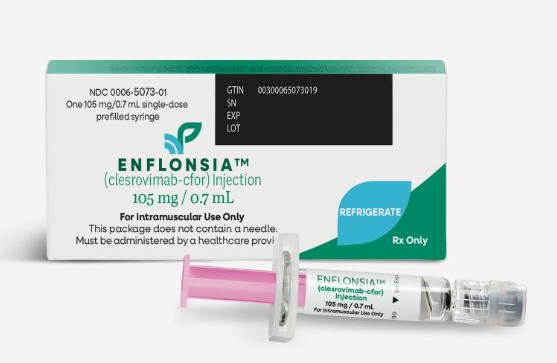Story Highlights
- Many of the serious side effects of COVID-19, including high fever, cough, shortness of breath, lung injuries and long-term lung fibrosis are symptoms of a cytokine storm, which is a hyper-inflammatory response to infection.
- Melatonin, a hormone produced in the mitochondria and existing in almost all cells in all organisms, has been investigated as a potential therapy to calm the cytokine storm and moderate the most severe symptoms of COVID-19.
- Melatonin is a powerful anti-inflammatory and antioxidant, has well-known anti-viral properties and aids in the sleep-wake cycle.
One of the primary processes by which COVID-19 induces serious illness is by initiating a hyper-inflammatory response known as a “cytokine storm,” or hypercytokinemia. A new study published in journal Medicine in Drug Discovery found that melatonin, an anti-inflammatory molecule produced by the body, may help prevent the cytokine storm that is associated with the most severe cases of COVID-19 infections.1
Cytokines are signaling proteins that affect the functioning of the immune system. Different types have different effects, i.e., some act to ramp up the inflammatory response of the immune system and others to slow it down. The release of cytokines is part of a normal immune system’s inflammatory response, but when the body releases too many too quickly, it results in a cytokine storm that can wreak havoc on the whole immune system.2
Many of the symptoms associated with serious COVID-19 infections, such as the high fever, lung injuries causing cough, shortness of breath and long-term lung fibrosis are indicative of a cytokine storm.3 Symptoms also may include inflammatory markers like redness and swelling, pronounced fatigue, nausea, enlarged spleen, excessive bleeding and low blood cell counts (red, white and platelets).4 5 If it remains unresolved, a cytokine storm can cause multiple organ failure and lead to death.
Melatonin is a Potential Ally
Numerous drugs and other forms of treatment are being evaluated for their potential use to prevent serious complications of COVID-19 infections. Since new therapies to treat COVID-19 couldn’t feasibly get through research, development and safety studies in time to help those who are infected now, medical researchers are particularly interested in tried and true therapies that might be effective right now. Broad-spectrum antiviral agents, some antibiotics and anti-parasitic medications are a few examples of proposed treatments being investigated.
Another is a proposal that melatonin, a molecule produced in the body that has potent antioxidant and anti-inflammatory properties, may provide some protection against “catastrophic oxidative stress.”6
Melatonin was originally thought to derive exclusively from the pineal gland of vertebrates, but it was ultimately identified in prokaryotic bacteria, the precursors to mitochondria. Given the high levels of measurable melatonin in mitochondria, it was hypothesized and eventually documented that melatonin is produced in the mitochondria and exists in almost all cells in all organisms. 7 8 Ordinarily, mitochondrial melatonin would effectively counteract the cytokine storm, neutralize the free radicals being created and prevent the dramatic lung damage seen with COVID-19. However, one of the consequences of COVID-19 infection is a breakdown of the processes needed for macrophage mitochondria to synthesize melatonin.
With melatonin unavailable to mitigate the inflammation and neutralize reactive oxygen species, the environment is primed to allow for the severe respiratory tract damage that is one of the primary complications of COVID-19. Further, endogenous melatonin production is known to decrease with age and is significantly reduced in frail elderly patients, which helps explain the increased risk of serious complications and mortality from COVID-19 infections seen in older populations.
The study’s authors believe that treatment of COVID-19 with supplemental melatonin is a justifiable treatment that would be expected to reverse the chain-reaction of processes that obstruct the synthesis of natural mitochondrial melatonin. With that pathway restored, natural melatonin production would rebound and, together with supplemental melatonin, could provide “a formidable weapon to reduce the cytokine storm as well as its damaging consequences, thereby relieving the signs of a COVID-19 infection.”9
Melatonin is Getting the Attention of Scientists
Other scientists also have suggested that melatonin may have a place in the arsenal of therapies to help moderate the effects of the COVID-19 pandemic.
In addition to its’ widely documented antioxidant and anti-inflammatory properties, melatonin is also known to be an anti-viral agent that can be used to treat viral infections other than COVID-19.10 Known primarily as a natural sleep aid, melatonin acts to regulate sleep through its effects on the body’s biological clock and sleep-wake cycles. Like most hormones, its natural production follows a circadian rhythm, rising with the dark and ebbing with the coming of the light.11
Other properties of melatonin include promotion of cell growth, halting apoptosis (self-destruction of infected cells in an attempt to stop proliferation of the pathogen) and modulating immune system functions.12 It also reduces vessel permeability and its effects on mood could aid in the treatment of critical care patients by reducing anxiety, the need for sedation and improving their quality of sleep.13
Agreeing with conclusions made in other published reports,14 15 16 the authors of the study cite melatonin’s high safety profile, low cost, long shelf-life and ease of self-administration, adding, “the use of melatonin to mitigate the COVID-19 pandemic would be feasible and a socially-responsible measure to attempt.”17
References:
1 Reiter RJ, et al. Melatonin Inhibits COVID-19-induced Cytokine Storm by Reversing Aerobic Glycolysis in Immune Cells: A Mechanistic Analysis. Med Drug Discov June 6, 2020.
2 National Cancer Institute. NCI Dictionary of Cancer Terms: Cytokines.
3 See Footnote 1.
4 See Footnote 2.
5 Windsor M. Here’s A Playbook For Stopping Deadly Cytokine Storm Syndrome. University of Alabama at Birmingham Nov. 1, 2019.
6 Tan DX, et al. Melatonin as a Potent and Inducible Endogenous Antioxidant: lSynthesis and Metabolism. Molecules Oct. 2015.
7 See Footnote 1.
8 Tan DX, et al. Mitochondria and Chloroplasts as the Original Sites of Melatonin Synthesis: A Hypothesis Related to Melatonin’s Primary Function and Evolution in Eukaryotes. J Pineal Res March 2013.
9 See Footnote 1.
10 Ibid.
11 Breus MJ. Could Melatonin Help Protect Against COVID-19? Psychology Today May 8, 2020.
12 Studies Show Melatonin May Help Fight Coronavirus. Chronobiology 2020.
13 Zhang R, et al. COVID-19: Melatonin as a Potential Adjuvant Treatment. Life Sci June 1, 2020
14 Ibid.
15 Tan DX, Hardeland R. Potential Utility Of Melatonin In Deadly Infectious Diseases Related To The Overreaction Of Innate Immune Response And Destructive Inflammation: Focus On COVID-19. Melatonin Research 2020.
16 Vakhrusheva A, et al. Can Melatonin Reduce The Severity Of COVID-19 Pandemic? Research Gate April, 2020.
17 See Footnote 1.













5 Responses
Melatonin may indeed be useful for COVID-19, but please remember, the existence of an infectious agent causing COVID-19 remains without scientific basis. There has been no SARS-COV-2 virus isolated and purified, no scientific confirmations of infectivity of the virus, and no ability to isolate the virus from blood or secretions of supposedly infected individuals. Shocking as this may be for some readers, the same pattern of misinformation about viral epidemic is being repeated for the umpteenth time, with exactly the same kinds of unscientific pandemics attributed to viruses occurring in the Spanish Flu epidemic of 1918-1919, the SARS virus, AIDS, Hepatitis C, and the H5N1 avian flu epidemic. Please don’t let the media know of this: they all know better than scientists of the reality of the infectious basis of COVID-19.
In the second to the last paragraph it states the following: Other properties of melatonin include promotion of cell growth, halting apoptosis (self-destruction of infected cells in an attempt to stop proliferation of the pathogen) and modulating immune system functions.
I am taking melatonin for cancer care and recently my TGF-b1 has been quickly elevating (from 1600 to 7000 in 7 mos.) Could Melatonin be causing this elevation? Could it inhibit apoptosis of cancer cells? This scared me a bit.
I am so glad I already has melatonin capsules on hand before this crap surfaced.
This situation is weird and I sincerely hope it loops back to a more rational and normal world.
This virus is no worse than normal flu for most who get sick.
So please do LOTS of your own research and be aware of new vaccines being mandated w/o making it public first.
Take care of your own health since the FDA does such a poor job of assisting with doing that.
Mark. I immediately wanted to share this article far and wide, and then I read your comment. Having your insanity as the first comment just ruins it for the rest of us who want to share real information with people in a helpful way. Save your rants for a different platform, please. You may think you are doing some good, but you are doing more harm than good. I am so frustrated with you. Maybe you are a troll and this was the entire point.
Yikes Mark! What Andrea said. Melatonin is a great addition to anyones tool box for health. This new data supporting it’s possible helpfulness with the current virus is excellent news.